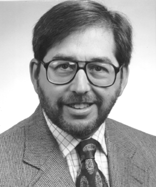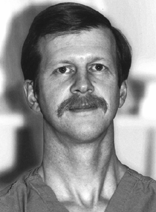Three research grant applicants were selected for 2001 funding by the APSF Committee on Scientific Evaluation (committee members are listed on Page 63). Topics for the impending patient safety research cover a broad spectrum of safety issues.
This was the second year in which the maximum award has been increased $65,000. The committee members were pleased to note that although the total number of applications had actually decreased from the previous year (23 to 13), the quality of the submissions was definitely maintained. Importantly, the proposals specifically addressed areas of high priority, as delineated by APSF. As noted in the guidelines for grant application, the major objective of APSF is to stimulate the performance of studies that lead to prevention of mortality and morbidity from anesthesia mishaps. A particular priority continues to be given to studies that address problems of anesthesia for healthy patients or those studies that are broadly applicable and that promise improved methods of patient safety with a defined and direct path to implementation into clinical care. The areas of outcome-based research in clinical settings that are particularly prone to untoward events, such as office-based anesthesia, continue to be emphasized.
Areas proposed this year included various topics, such as: development of programs for improving airway management in rural regions; decreasing perioperative complications associated with alcohol use in surgical patients; preoperative stratification of risk factors associated with laryngoscopy and tracheal intubation; the safety of tourniquet use in selected patient populations; determination of perioperative genomic profiles; determination of rehabilitation potential following surgery and regional versus general anesthesia; the effect of acupuncture on anesthetic requirements; the effect of MRI on monitoring; and determination of effectiveness and safety of new technologies, such as needle-guided ultrasound cannulation of central veins. The APSF Scientific Evaluation Committee met prior to the APSF Annual Meeting in October in San Francisco for final evaluation of the proposals. Of the six finalists, the members of the APSF committee selected three awardees:
 Fredrick K. Orkin, MD, MBA, Professor of Anesthesiology and Health Evaluation Sciences at PennState University College of Medicine. His project is “The Relative Safety of Major Anesthetic Techniques.” This proposal has four specific objectives: 1). To identify patient related predictors for specified adverse outcomes with each of the major anesthetic techniques (general, nerve block, epidural and spinal anesthesia) in relation to specified common surgical procedures; 2). To compare the relative safety of these anesthetic techniques with respect to outcomes, after controlling for patient specific risk factors and type of surgery; 3). To evaluate outcomes variation across clinical settings and seek potential explanations; and 4). To offer clinical guidance in enhancing anesthesia safety through choice of major anesthetic techniques based on findings from this project. The study population includes a prospective cohort of hospitalized patients having surgery since late 1991 in a US Veterans’ Affair Medical Center, as captured in the VA National Surgical Quality Improvement Program (NSQIP) database of about 800,000 patients. The investigator will use logistic regression analysis to identify patient characteristics that render certain patients especially prone to adverse outcome with each of the anesthetic techniques. Then, the investigator will model risk-adjusted, thirty-day mortality, thirty-day specified specific severe morbidity, and hospital readmission following each of the anesthetic techniques, in relation to each of the severe several common surgical procedures for which these techniques are often used. In addition, outcome variation across participating sites will be evaluated, and the relative safety of each anesthetic technique will be compared.
Fredrick K. Orkin, MD, MBA, Professor of Anesthesiology and Health Evaluation Sciences at PennState University College of Medicine. His project is “The Relative Safety of Major Anesthetic Techniques.” This proposal has four specific objectives: 1). To identify patient related predictors for specified adverse outcomes with each of the major anesthetic techniques (general, nerve block, epidural and spinal anesthesia) in relation to specified common surgical procedures; 2). To compare the relative safety of these anesthetic techniques with respect to outcomes, after controlling for patient specific risk factors and type of surgery; 3). To evaluate outcomes variation across clinical settings and seek potential explanations; and 4). To offer clinical guidance in enhancing anesthesia safety through choice of major anesthetic techniques based on findings from this project. The study population includes a prospective cohort of hospitalized patients having surgery since late 1991 in a US Veterans’ Affair Medical Center, as captured in the VA National Surgical Quality Improvement Program (NSQIP) database of about 800,000 patients. The investigator will use logistic regression analysis to identify patient characteristics that render certain patients especially prone to adverse outcome with each of the anesthetic techniques. Then, the investigator will model risk-adjusted, thirty-day mortality, thirty-day specified specific severe morbidity, and hospital readmission following each of the anesthetic techniques, in relation to each of the severe several common surgical procedures for which these techniques are often used. In addition, outcome variation across participating sites will be evaluated, and the relative safety of each anesthetic technique will be compared.
This project has obvious clinical implications on patient safety: Despite the tremendous advances in patient safety during anesthesia that have occurred in the past few decades, there is a possibility that currently unrecognized outcome differences may actually be substantial in the aggregate. The proposed project may identify patient-based factors that would predict specific adverse outcomes, identify discrete patient populations at increased risk for specific complications, and the resultant new knowledge may provide clinical guidance to enhance patient safety through more appropriate choice of anesthetic techniques. Dr. Orkin’s co-investigators are Christopher Hollenbeak, PhD, who will provide the statistical analyses, and Benjamin Leiby, AB, who will be responsible for preparing the analysis data sets. Other consultants include Arthur J. L. Schneider, MD, M.Ed., who will provide expertise in evaluation of the analytic results and formulation of additional hypotheses.
 Harvey J. Woehlck, MD, Associate Professor at the Medical College of Wisconsin, will investigate “Preoperative Smoking and Myocardial Ischemia.” This study will test the hypothesis that smoking in the hours immediately before surgery increases episodes of myocardial ischemia during general anesthesia in patients with ischemic heart disease. The study proposes to follow two groups of patients: Smokers who did not smoke recently (control group), and a matched group of active smokers who did smoke recently. Continuous EKG monitoring will start preoperatively and will continue into the postoperative period in order to identify episodes of myocardial ischemia along with hemodynamic data and biochemical markers for myocardial injury. The degree of recent and chronic smoking will be determined from intraoperative COHb concentrations and plasma thiocyanate concentrations.
Harvey J. Woehlck, MD, Associate Professor at the Medical College of Wisconsin, will investigate “Preoperative Smoking and Myocardial Ischemia.” This study will test the hypothesis that smoking in the hours immediately before surgery increases episodes of myocardial ischemia during general anesthesia in patients with ischemic heart disease. The study proposes to follow two groups of patients: Smokers who did not smoke recently (control group), and a matched group of active smokers who did smoke recently. Continuous EKG monitoring will start preoperatively and will continue into the postoperative period in order to identify episodes of myocardial ischemia along with hemodynamic data and biochemical markers for myocardial injury. The degree of recent and chronic smoking will be determined from intraoperative COHb concentrations and plasma thiocyanate concentrations.
Dr. Woehlck’s study meets the APSF priority criteria, as patients undergoing general anesthesia who smoke preoperatively may be at risk for myocardial ischemia and adverse cardiac outcomes. Furthermore, patients with ischemic heart disease who smoke preoperatively may be at even greater risk of developing myocardial ischemia, and may have significant postoperative morbidity. The study aims to define the risk of developing such morbidity, and may improve patient safety by identifying additional risk factors for intraoperative myocardial ischemia. This may also provide the needed evidence for clinicians to use expired breath carbon monoxide (CO) to screen for patients with recent cigarette smoke inhalation. Dr. Woehlck’s co-investigators and collaborators include Dr. Michael Cinquegrani (Department of Cardiovascular Medicine), Dr. Louis Connolly (Department of Anesthesiology), and Marshall Dunning III, PhD (Pulmonary and Critical Care Medicine).
 Richard H. Blum, MD, MSE, Instructor in Anaesthesia at Harvard Medical School, and Medical Director of the Post Anesthesia Care Unit at Children’s Hospital in Boston will work on “Assessing Team Information Sharing.” This study proposes to introduce an innovative method for assessing a facet of communication, team information sharing, among anesthesia providers and other O.R. personnel. Communication failure is a critical element in sub-optimal team performance that can lead to adverse outcomes in anesthesia. The investigators will insert probes (facts, data, or information that will have an important bearing on a patient’s care) into a realistic, simulated O.R. situation and use a written instrument to infer team information sharing at multiple cognitive levels. A test of predictive validity will be conducted by comparing this new method with videotape analysis by trained raters. The results of this study may help develop a method to evaluate and assess educational interventions to improve team performance, and thus reduce the errors and team failures that lead to adverse outcomes and patient injuries.
Richard H. Blum, MD, MSE, Instructor in Anaesthesia at Harvard Medical School, and Medical Director of the Post Anesthesia Care Unit at Children’s Hospital in Boston will work on “Assessing Team Information Sharing.” This study proposes to introduce an innovative method for assessing a facet of communication, team information sharing, among anesthesia providers and other O.R. personnel. Communication failure is a critical element in sub-optimal team performance that can lead to adverse outcomes in anesthesia. The investigators will insert probes (facts, data, or information that will have an important bearing on a patient’s care) into a realistic, simulated O.R. situation and use a written instrument to infer team information sharing at multiple cognitive levels. A test of predictive validity will be conducted by comparing this new method with videotape analysis by trained raters. The results of this study may help develop a method to evaluate and assess educational interventions to improve team performance, and thus reduce the errors and team failures that lead to adverse outcomes and patient injuries.
Dr. Blum’s co-investigators and collaborators include: Daniel Raemer, PhD (Operations Director, Center for Medical Simulation), Jeffrey B. Cooper, PhD (Director of Bioengineering for Partners Healthcare Systems and Director of the Center for Medical Simulation), John S. Carroll, PhD (Professor of Behavioral and Policy Sciences, Massachusetts Institute of Technology, Sloan School of Management) and David Zurakowski, PhD (Biostatistician, Children’s Hospital, Boston).
The members of the APSF Scientific Evaluation Committee wish to congratulate all of the investigators who submitted their work to APSF this year, whether or not their proposals were funded. We hope that the high quality of the accepted proposals will serve as a stimulus for others to submit research grants that will benefit all patients.
Dr. Brull acted as 2000 Chair of the Committee on Scientific Evaluation, APSF. He is Professor and Chairman, Department of Anesthesiology, University of Arkansas for Medical Sciences, Little Rock.

